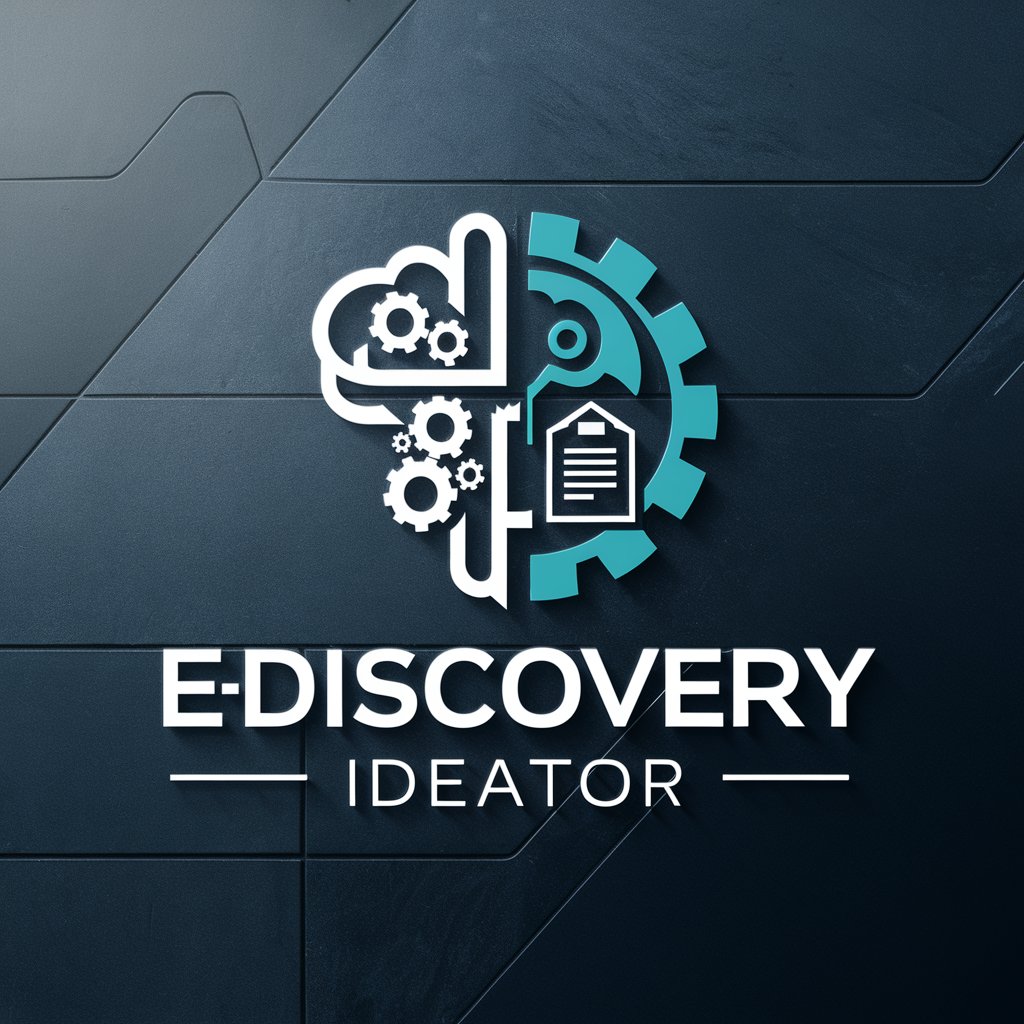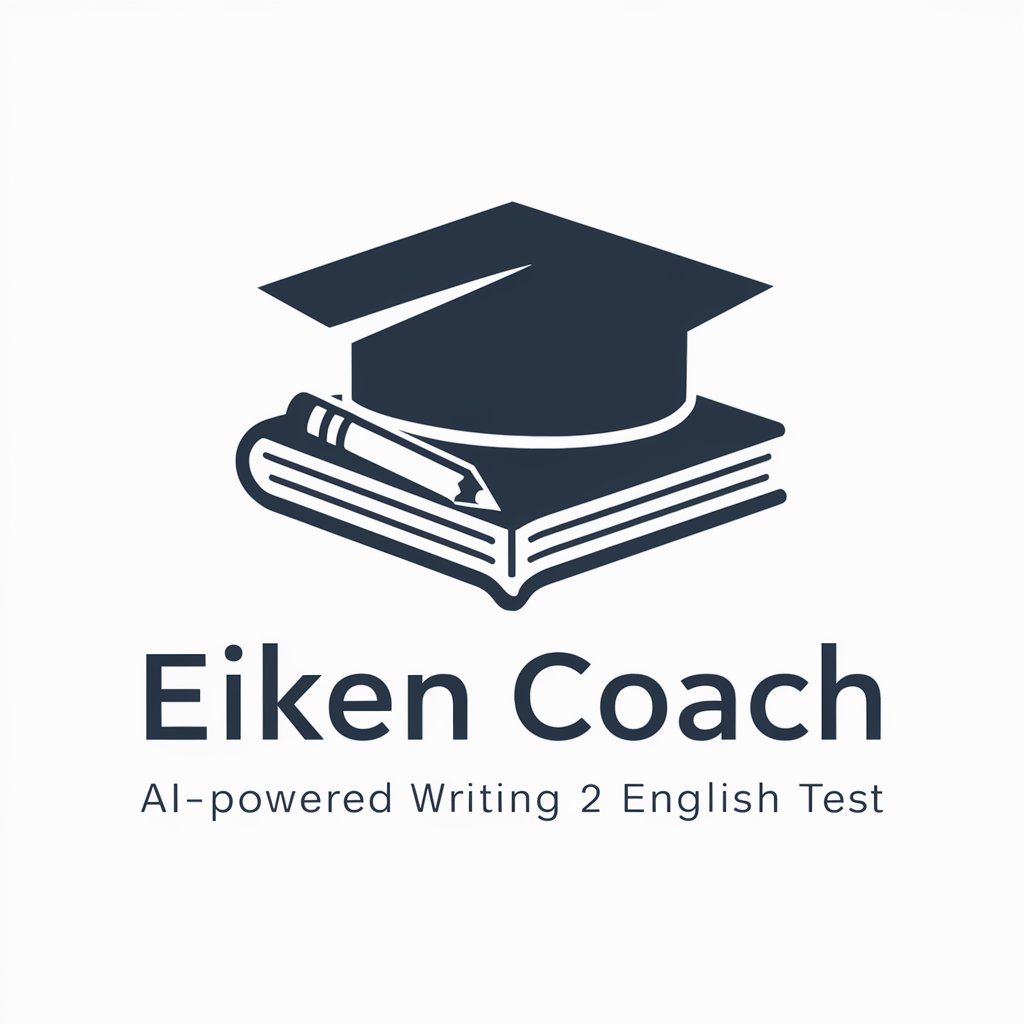eDiscovery Ideator - AI-powered eDiscovery Aid

Welcome to eDiscovery Ideator, where AI meets legal innovation.
Transforming eDiscovery with AI
How can generative AI enhance the efficiency of document review in eDiscovery?
What are the best practices for integrating multiple LLMs in eDiscovery workflows?
Explain the advantages of using LLMs over traditional TAR methods in legal document review.
Describe the potential cost savings and efficiencies gained by using AI in eDiscovery.
Get Embed Code
Introduction to eDiscovery Ideator
The eDiscovery Ideator is designed as a specialized AI tool focused on enhancing and innovating the process of electronic discovery (eDiscovery) in the legal field. Its primary design purpose is to leverage generative AI and NLP (Natural Language Processing) technologies to surpass traditional methods of human review and Technology Assisted Review (TAR). This includes offering insightful analysis, predictive modeling, and advanced search capabilities to streamline the review of electronic documents for litigation, compliance, and information governance purposes. An example scenario illustrating its application could involve a law firm facing a massive volume of documents to review for an upcoming case. The eDiscovery Ideator could assist by efficiently categorizing documents based on relevance, highlighting key information, and suggesting potential areas of interest or concern, thereby saving time and reducing costs. Powered by ChatGPT-4o。

Main Functions of eDiscovery Ideator
Advanced Document Analysis
Example
Using AI to automatically categorize and prioritize documents based on their relevance to specific legal cases.
Scenario
In a scenario where a legal team needs to quickly understand the scope of documents related to a complex financial litigation, eDiscovery Ideator can analyze and rank documents, identifying those most likely to contain pertinent information.
Predictive Coding
Example
Leveraging machine learning to predict document relevance based on a smaller set of reviewed documents.
Scenario
For a discovery request involving thousands of emails, eDiscovery Ideator can use initial attorney reviews to learn and predict which other emails are likely to be relevant, streamlining the review process.
Dialogue-Based Querying
Example
Facilitating complex search queries through natural language processing, allowing users to refine searches based on conversational input.
Scenario
If an attorney is searching for documents that mention a specific, but vaguely remembered, event or term, eDiscovery Ideator can iteratively refine search results based on dialogue and feedback, narrowing down to the most relevant documents.
Summarization and Highlighting
Example
Automatically summarizing key document contents and highlighting critical information for review.
Scenario
In preparing for depositions, eDiscovery Ideator can summarize deponent-related documents and highlight sections mentioning specific issues or events, aiding in deposition preparation.
Ideal Users of eDiscovery Ideator Services
Legal Professionals
Attorneys, paralegals, and legal analysts involved in litigation, compliance, and corporate governance who need to process large volumes of electronic documents efficiently. They benefit from the Ideator's ability to rapidly analyze, categorize, and summarize relevant documents, thus enhancing their productivity and the accuracy of their work.
Corporate Legal Departments
In-house legal teams managing corporate litigation, compliance, or conducting internal investigations. These users benefit from the Ideator's capabilities in handling vast amounts of corporate data, assisting in risk assessment, and ensuring compliance with legal and regulatory requirements.
Government Agencies
Regulatory bodies and government legal departments involved in investigations, compliance checks, and litigation. eDiscovery Ideator aids these users by providing tools for thorough and efficient review of documents, crucial for public sector accountability and regulatory compliance.
Legal Tech Companies
Providers of legal technology solutions that wish to incorporate advanced AI and NLP capabilities into their offerings. These companies can leverage the Ideator to enhance their existing platforms, offering cutting-edge eDiscovery solutions to their clients.

How to Use eDiscovery Ideator
1
Start with a hassle-free experience by visiting a dedicated platform offering a free trial, ensuring you can explore its capabilities without the need for a login or subscribing to a premium service.
2
Upon accessing the tool, select the specific eDiscovery aspect you're interested in, such as document review, legal research, or data analysis, to tailor the AI's focus to your needs.
3
Utilize the intuitive interface to input your eDiscovery-related queries or data sets. Ensure your inputs are clear and concise for the most accurate AI-generated insights.
4
Review the AI-generated recommendations or analysis. Use the feedback loop to refine your queries for more precise outcomes, leveraging the tool's ability to adapt to your specific eDiscovery requirements.
5
Take advantage of the tool's collaboration features to share findings with team members, if applicable, enhancing your eDiscovery project's efficiency and effectiveness through collective insights.
Try other advanced and practical GPTs
What's My Prompt Public
Unlock AI-powered creativity and insight with transparency.

Fantasy Football Player Profiles
Empower Your Fantasy Football Decisions with AI

Campagnolo È
Elevate Your Ads with AI

Lexideck Aegis Earth RPG
Unleash Your Superhero Within

Horror Quest by Mojju
Immerse in AI-Powered Horror Narratives

SlackAi Assistant by Mojju
Unlock Insights from Slack Conversations

Elite VIM Practice
AI-Powered Vim Command Mastery

NPPF Ai Expert
Empowering Planning Decisions with AI

Teenage Engineer
Crafting Joy with AI-Powered Design

Content Summarizer Expert
Summarize smarter, engage better

英検2級ライティングコーチ
Empower your English with AI

Landmark Blender
Blending landmarks, powered by AI.

eDiscovery Ideator FAQs
What is eDiscovery Ideator?
eDiscovery Ideator is an AI-powered tool designed to assist legal professionals and teams in the eDiscovery process, offering capabilities like document review, data analysis, and legal research, powered by advanced NLP techniques.
How does eDiscovery Ideator improve the review process?
By leveraging AI and machine learning, eDiscovery Ideator enhances document review efficiency, reduces manual labor, and increases accuracy by identifying relevant documents and extracting key information, all while learning from user interactions to refine future searches.
Can eDiscovery Ideator handle large data sets?
Yes, it's built to manage and analyze large volumes of data, making it suitable for complex legal cases. Its AI algorithms can quickly sift through extensive document collections, prioritizing relevant information for review.
Is eDiscovery Ideator suitable for all types of legal practices?
While particularly beneficial for litigation, compliance, and investigations, its versatile functionality makes it a valuable asset across various legal disciplines requiring efficient data analysis and document review.
How does eDiscovery Ideator ensure data security?
Adhering to stringent data protection standards, eDiscovery Ideator employs advanced encryption and secure processing techniques to safeguard all data, ensuring confidentiality and compliance with legal data security regulations.
